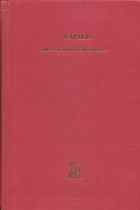Napier, the Forgotten Chessmaster
John Hilbert

When I was young I fell in love with chess not only for the rush that playing the game brought me, but also for the nostalgic, otherworldly feelings that the lives of the old masters conveyed. I still recall quivering in delight if an Alekhine anecdote was told. Steinitz fascinated me, and his miserable end left me feeling depressed. Lasker took on God-like proportions in my twelve-year-old mind, and other players like Marshall, Nimzovich, Bogolubov and Reti also occupied my attention day after day (all right, I left out Capablanca. For some reason I was never fond of him, though that drastically changed when I grew a bit older).
In the past there was very little detailed information on the lives of these great men. Then, quite recently, books began to appear on Alekhine, Rubinstein, Schlechter, Marshall and now… Napier? Who in the hell is Napier and why would anyone want to read about his life? Napier was born in 1881 and died in 1952. He was an attacking player who created many exciting games, and his loss to Lasker is thought to be one of the greatest ever played. Napiers games are given throughout this book, most with notes. His writings, tournaments and day-to-day existence are also discussed extensively.
By itself, these things wouldnt be of much interest to non-fanatics. However the real value of the book becomes apparent when you see how the times affected Napier, and how both Napier and that period also affected all the New York based masters (including Pillsbury and Marshall) and virtually all the players of extra-class worldwide (Lasker, Steinitz, Tarrasch, Chigorin, Janowski… the list goes on and on).
What we have, then, is a history book of times long past that gives us a glimpse into the souls of chess legends long since dead. Such perspectives have the power to increase your love for chess, and help you understand the joys and agonies of daily life with more depth and compassion.
This type of book is not for everyone, but the game would be richer if more players tore down their self-absorbed walls and took a hard look at what has come before them. Books of this nature give us a chance to do so.
A great addition to any chess library. The author deserves a lot of praise for putting together such a detailed piece of work.
